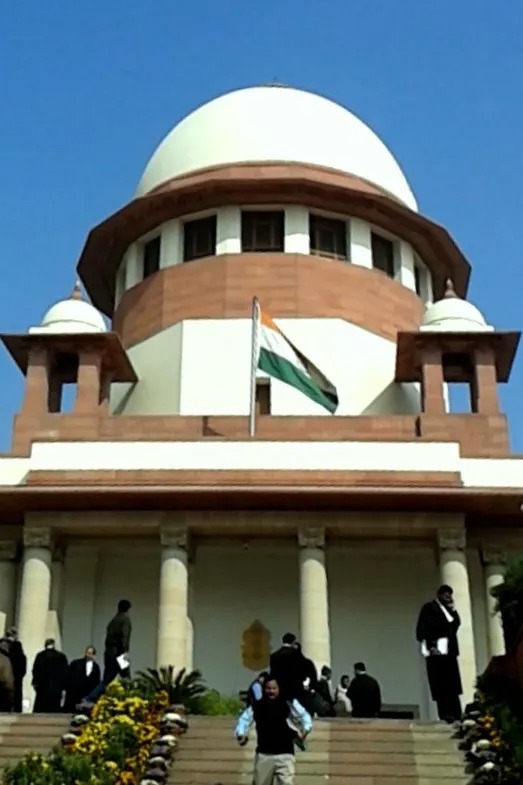R.A. Sharma J.
1. Petitioner, who was owner of a stage carriage operating Under permit granted to him Under Motor Vehicles Act, has filed this writ petition, challenging the assessment order dated 23.8.1985 and 6.9.1985, passed by the Passenger Tax Officer Under Uttar Pradesh Motor Gadi (Yatri Kar) Adhiniyam (hereinafter referred to as the Act) assessing him to tax In ex parte proceedings.
2. Learned Counsel for the Petitioner has raised two contentions in support of the writ petition, namely, (i) the assessment orders have been passed on the basis of the direction of the Transport Commissioner contained in the letter dated 6/8.7.1985, issued by the Deputy Transport Commissioner to all the Regional Transport Officers/Taxation Officers for making assessment Under the Act on the assumption that the stage carriage must had covered 4,000 Kilo Metres per month, and (ii) the impugned assessment orders have been passed without giving any notice or opportunity of being heard to the Petitioner.
3. Transport Commissioner, U.P. is the head of the Department of this State Under whom large number of Additional Transport Commissioners, Deputy Transport Commissioners, Assistant Transport Commissioners, Regional Transport Officers, Asstt. Regional Transport Officers and various Taxation Officers Under Taxation Acts relating to the motor vehicle work. He has issued directions, which are contained and referred to in the letter dated 6/8.7.1985 issued by the Deputy Transport Commissioner in which it has been mentioned that a vehicle should be assessed to tax on the assumption that it must have covered 4,000 Kilo Metres per month. Acting on the basis of the direction of the Transport Commissioner, the assessment order dated 23.8.1985 has been passed by the Taxation Officer. In this connection, in paragraph 6 of the counter affidavit It has been stated as Under:
The passenger tax was assessed ex parte by the Respondent No. 3 against the Petitioner for 3 months presuming that the stage carriage must had covered 4,000 Kms. per month continuously with the formula as provided u/s 5 (3A) of the U.P. Motor Gadi (Yatri Kar) Adhiniyam 1962.
4. According to the assessment order, it has been passed on the assumption that the vehicle must have plied 4,000 Kms. per month without reference to Sub-rule (3A) of Rule 5 ; but in the counter affidavit said Sub-rule (3A) has been relied upon for making the assessment order. But it does not make any difference because the assessment order cannot be sustained Under any circumstance for the following reasons:
5. Firstly, Under the Act and Rules, it is open to an operator to pay the passenger tax either on the basis of way-bills, monthly and weekly returns or on the basis of lump sum agreement, which he may make with the Taxation Officer on the basis of the formula contained in Rule 5. Sub-rule (3) of Rule 5 lays down formula for lump sum agreement for stage carriage while Sub-rule (3A) provides for formula for lump sum agreement for contract carriage. Formula mentioned in Rule 5 is liable to be adopted only when lump sum agreement is reached between the operator and the Taxation Officer. In the instant case, it is not the case of the Respondents that the Petitioner has entered into a lump sum agreement. Their case, as is clear from the impugned order and the counter affidavit, is that the Petitioner was found plying without payment of passenger tax. It is nowhere stated that he was plying Under lump sum agreement. There fore, Rule 5 could not have been applied. That apart, as admittedly the Petitioner was holding a stage carriage, Sub-rule (3A) of Rule 5 could not have been applied even if there was a lump sum agreement, because that provision provides for a formula for lump sum agreement for contract carriage.
6. Secondly, Transport Commissioner has the jurisdiction to issue administrative directions to all the officers working in the Transport Department but he cannot issue order or direction affecting the discretion of the Taxation Shashi Bhushan Gupta v. Mool Chandra Gupta Officers, who exercise quasi Judicial power while making assessment orders Under the Act. No such power is conferred on the Transport Commissioner Under the Act or Rules framed there Under. The Transport Commissioner cannot direct that in every case, the assessment has to be made on the basis of the assumption that a vehicle must have run 4,000 Kms. per month. It is for the Taxation Officer to determine the question in every case on the basis of its facts and circumstances. The assessment order dated 23.8.1985 (Annexure-2 to the writ petition), therefore, has to be set aside.
7. As regards the other assessment order dated 6.9.1985, it has not been passed on the basis of the aforesaid order of the Transport Commissioner and Rule 5. It is an ex parte order on the ground that the Petitioner has not appeared inspite of notice. The order does not contain as to on what basis the amount determined by Taxation Officer has been arrived at. The order is a non-speaking order so far as the quantum of tax is concerned, but the Petitioner has made a representation before the Taxation Officer, in paragraph 2 of which it has been stated that he was not given any notice before passing the assessment order. It is well settled that if an ex parte assessment order has been passed by the Taxation Officer, it is open to the operator concerned to apply to the Taxation Officer for recall of that order on the ground that he was not given any notice before such an order was passed and if such an application is made, it is liable to be decided by the Taxation Officer and if he finds that notice was not given to the operator concerned before passing the assessment order, he has to recall it and pass a fresh order after giving notice to him In accordance with law.
8. It is true that against the assessment order, an appeal lies before the Deputy Transport Commissioner (Passenger Tax). But the Deputy Transport Commissioner has issued letters to the Taxation Officer communicating the direction Issued by the Transport Commissioner regarding the assessment of tax on the assumption of 4.000 Kms. plying per month. That apart, it is too much to expect from the Taxation Officer and the Deputy Transport Commissioner (appellate authority), who are subordinate to the Transport Commissioner to Ignore his orders and directions while passing the assessment orders and deciding the appeal. Filing of appeal Under such circumstances would have been an idle formality. This Court, therefore, in 1985 entertained this writ petition and admitted it on 9.9.1986. It also granted interim order staying the realisation of the impugned tax in pursuance of the impugned assessment orders.
9. For the reasons given above, this writ petition is allowed with costs. Assessment orders dated 23.8.1985 and 6.9.1985 are quashed. The Taxation Officer is directed to pass orders afresh after notice to the Petitioner in accordance with law expeditiously. Petitioner is directed to serve a certified copy of this order on the Taxation Officer within a period of six weeks from today.

